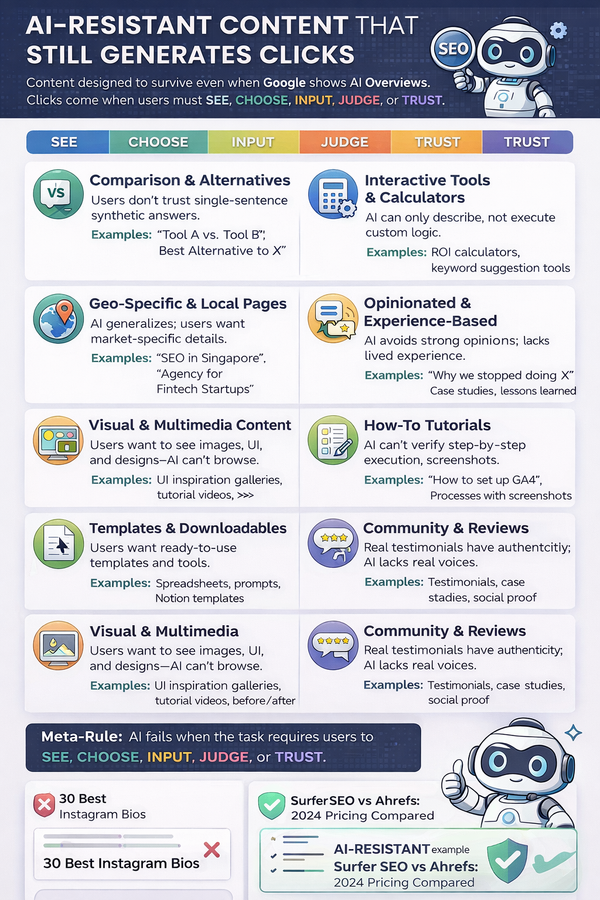Does creating many similar web pages or content hurt SEO?

Based on my years of SEO experience, it depends - Google doesn't always penalize websites for creating large numbers of pages with almost identical content for several reasons, primarily rooted in how Google understands and evaluates pages, content, and user intent. Let's take DeepL as an example that created thousands of pages of "Translating [language A] to [language B]" with almost 99% similar web content.
1. Intent and User Value
- Language-specific search intent: These pages cater to distinct user needs—people searching for translation from one language to another. Even though the content on each page may look similar, it provides valuable, localized information that serves a specific purpose. When someone searches for "Spanish to English translation" or "French to German translation," their intent is not to get unique articles or content but to access a reliable translation tool. The content of the page is considered valuable because it's fulfilling a specific, language-based intent.
2. Google's Understanding of Duplicate Content
- No penalty for "functional" duplicate content: Google does not penalize content simply because it is similar across pages, as long as the content serves a legitimate purpose. In this case, DeepL’s pages are considered functional rather than duplicate in the traditional sense, like pages that scrape content from other sites. Google recognizes these pages as part of a broader, structured offering—different language pairs—where the user experience (UX) and intent are clearly focused on a translation tool, not original editorial content.
- Dynamic, not static, content: Many of these pages are dynamically generated based on the language pair selected by the user. Because these pages are built for specific combinations of languages, Google views them as specialized content rather than low-quality or thin content that lacks value. In this case, even though the pages appear very similar in structure, they are considered unique in terms of the language pair being served.
3. Canonical Tags
- Translation companies like DeepL often use canonical tags to tell Google which version of a page is the "main" or most authoritative version. For example, if there are multiple pages like "Spanish to English" and "French to English," they may use a canonical link to indicate that one of these is the primary version or that the translations are interrelated.
- This helps prevent potential SEO penalties from duplicate content. If Google sees the same content spread across multiple pages (or even many pages), it generally uses the canonical tag to determine which page should be considered for ranking.
4. Google's Tolerance for Thin or Similar Content
- Google has become better at understanding thin content (content with little to no value) versus functional content. Pages like these may have little unique textual content beyond the language pair labels, but they provide a critical service for users. Google does not automatically penalize every similar page—it evaluates how well the content serves its audience. As long as the page offers an effective translation tool, it’s seen as useful.
5. Structured Data and SEO Best Practices
- Companies like DeepL often employ SEO best practices such as structured data (like schema markup) and highly optimized internal linking. These can help Google understand the content’s purpose better, categorizing each page by its unique language pair.
- Additionally, these pages are typically well-indexed and well-connected to the main website’s architecture, signaling to Google that they are part of a comprehensive, organized offering. This helps prevent these pages from being seen as "spammy" or low-quality, even if their content is not deeply unique.
6. Content Density vs. Functional Offering
- The nature of translation pages requires minimal textual content because their primary function is to serve a translation service, not to provide a large amount of textual information. Pages with little content that fulfill a functional purpose, such as language translation, are less likely to be penalized because they aren't intended to compete for ranking with content-rich articles or blogs. Instead, they serve a unique and clear function.
7. Quality and Authority
- Websites like DeepL have high domain authority, meaning Google trusts them as reliable sources for translations. Pages with similar content on these types of sites are more likely to be indexed without penalty because the site’s overall trustworthiness and value to users is already established.
In short, Google does not see such pages as a violation of its guidelines because they cater to a specific user need and provide clear, structured, and functional content. It's not "duplicate" content in the traditional sense of duplicate articles or product descriptions.
Use CapGo.AI to automate the whole process of programmatic SEO
Steps:
- Go to CapGo.AI and input your business model and target audience
- AI agent will do everything for you: generate a list of 100+ titles, relevant keywords, titles, and blog content in bulk in our table
- Upload all the content to your blog site in one click!



